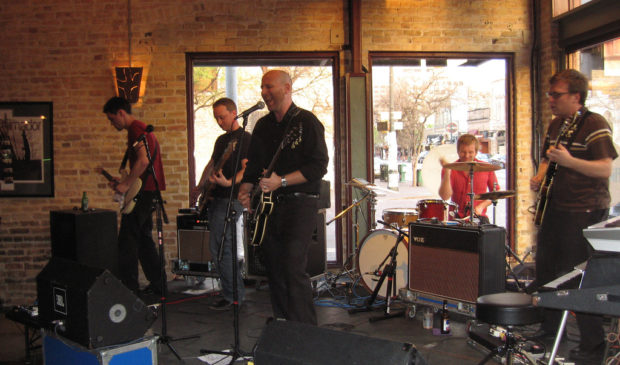Increased sound enforcement among ‘agent of change’ recommendations for Council
Monday, April 15, 2019 by
Chad Swiatecki By the end of this month, City Council could start considering a number of policy and operational changes – including a revision to the sound ordinance and more stringent enforcement of noise disturbances – to try to alleviate growing friction between nightlife businesses and nearby residences and hotels throughout the city.
On Saturday, the city’s Music and Entertainment Division presented its recommendations for addressing the long-brewing “agent of change” policy concept that looks to place the onus on new developments or businesses when it comes to managing noise issues between residential buildings and entertainment venues. The recommendations from hospitality consultant Jocelyn Kane came after a series of community input sessions and meetings with neighborhood groups, live music venues and hotel industry stakeholders looking to find a way for the city to address growth while preserving its nightlife economy.
A forthcoming report including all community input will accompany the recommendations when they are delivered to City Council for consideration on how city staff should proceed.
Among the biggest changes would be splitting the Entertainment Services Group out of the music division and the Economic Development Department so its function of handling permitting and sound enforcement issues would be more clearly defined. Currently that group has office space at the Austin Center for Events as well as at the music division, making ACE its possible new home. ESG would also become the primary body to issue and enforce the city’s Outdoor Music Venue permits, which have a higher frequency of complaints and other issues related to noise disturbances.
The city’s sound code was also singled out in Kane’s recommendations, with sound and acoustic experts likely to help fashion a way to monitor and regulate deep bass frequencies that don’t currently trigger monitoring but create a large portion of complaints. As a result, the city may explore programs to help new and existing venues mitigate their sound issues through some kind of loan program for sound system upgrades. The city may also look into ways to mitigate the impact of sound on nearby residential buildings.
An actual agent-of-change ordinance addressing conflicts between businesses and residences in close proximity would look for acknowledgment and possible building code requirements for new arrivals located within a 600-foot radius that could create an issue. That proximity could trigger sound studies and decibel-level standards to guide further mitigation needs on the part of the new business or development.
It was also recommended that the city organize a “nighttime economy alliance” made up of venue operators, neighborhood leaders and other stakeholders to meet on a regular basis and help guide city departments on relevant issues such as noise, homelessness or other matters that impact the nightlife economy.
The city began looking for a remedy for the agent-of-change issue in late 2015 when the Nook Amphitheater nightclub faced legal action from the nearby Westin Austin Downtown hotel because of sound complaints, even though the venue’s noise levels were within acceptable levels.
Kane, who has previously advised cities such as San Francisco and Toronto on nightlife economy issues, said consistent enforcement of the city’s noise ordinance is an essential piece of making the agent-of-change recommendations work once they take effect. She said Austin’s ongoing difficulty with enforcement stems in part from state law requiring noise issues to be handled as a law enforcement matter rather than a city fine that can be handled administratively.
“When we dug into what does enforcement and compliance look like, it was unfortunate from my side that it couldn’t be a little more streamlined, but the laws of Texas with municipal courts and how enforcement works are what they are, and having to work through a methodology was a little more difficult,” Kane said. “Maybe in the long run there’s an easier way, but you hear some concerns and frustration, and enforcement is the answer to most of this. Streamlining most of that would be ideal, but we have to work in the confines of what’s available because the word needs to pervade that this is being enforced.”
Photo by Sam Felder – https://www.flickr.com/photos/samfelder/113459579/, CC BY-SA 2.0, Link.
The Austin Monitor’s work is made possible by donations from the community. Though our reporting covers donors from time to time, we are careful to keep business and editorial efforts separate while maintaining transparency. A complete list of donors is available here, and our code of ethics is explained here.
You're a community leader
And we’re honored you look to us for serious, in-depth news. You know a strong community needs local and dedicated watchdog reporting. We’re here for you and that won’t change. Now will you take the powerful next step and support our nonprofit news organization?



